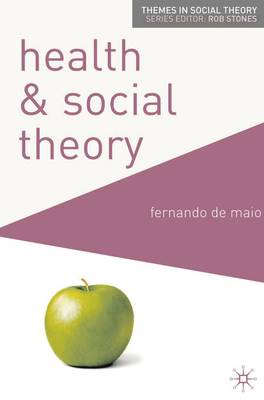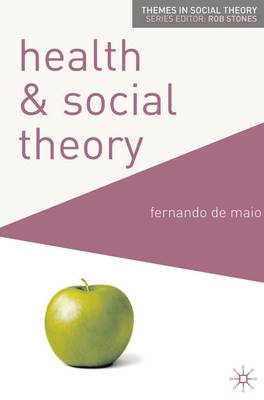
- Afhalen na 1 uur in een winkel met voorraad
- Gratis thuislevering in België vanaf € 30
- Ruim aanbod met 7 miljoen producten
- Afhalen na 1 uur in een winkel met voorraad
- Gratis thuislevering in België vanaf € 30
- Ruim aanbod met 7 miljoen producten
Zoeken
€ 50,45
+ 100 punten
Uitvoering
Omschrijving
What we consider to be 'healthy' is shaped by society; we compare our own health with those around us and identify illness according to social norms. But how are these standards established and how do they change? Is health a 'personal trouble' or a 'public issue'? And can Sociology allow us to develop a comprehensive analysis of the determinants of health?
This book examines how social theory shows us that health is not only shaped by our access to medical interventions, but also by power and inequality. From the personal experience of the unwell individual to the social, historical, cultural, and economic factors that affect national morbidity rates, the text looks at medical sociology from micro and macro levels. The chapters use examples from the most significant empirical work in the field to shed light on and challenge classical and contemporary social theory. In particular, the book looks at recent developments in medical sociology by specifically analysing:- Inequities based on income, gender, and racism
- The role of the pharmaceutical industry in shaping our ideas about disease
- Medical encounters and the medicalization of everyday life
- The structure of health care systems and health care reforms Health and Social Theory is a concise, comprehensive and cutting edge account of medical sociology. It is essential critical reading for all scholars and students interested in the field.
Specificaties
Betrokkenen
- Auteur(s):
- Uitgeverij:
Inhoud
- Aantal bladzijden:
- 160
- Taal:
- Engels
- Reeks:
- Reeksnummer:
- nr. 12
Eigenschappen
- Productcode (EAN):
- 9780230517424
- Verschijningsdatum:
- 1/01/2010
- Uitvoering:
- Paperback
- Formaat:
- Trade paperback (VS)
- Afmetingen:
- 155 mm x 231 mm
- Gewicht:
- 340 g

Alleen bij Standaard Boekhandel
+ 100 punten op je klantenkaart van Standaard Boekhandel
Beoordelingen
We publiceren alleen reviews die voldoen aan de voorwaarden voor reviews. Bekijk onze voorwaarden voor reviews.







